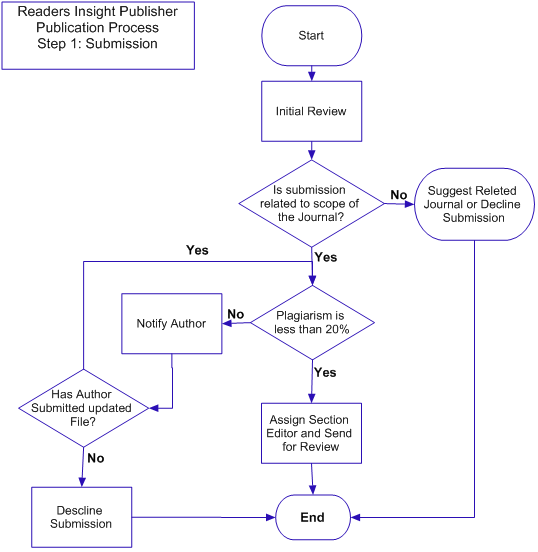About the Journal
- Aims and Scope
- Publication and Review Process
- Publication Frequency
- Open Access Policy
- Archiving
- Publication Fee
The journal of research in psychology (ISSN Online 2664-9500, ISSN Print 2664-9497) is a peer-reviewed, open-access, online journal that publishes research across multiple domains of psychological sciences. Our emphasis is on publishing quality papers rapidly and freely available to researchers worldwide. The journal has comprehensive coverage of applied and theoretical psychology including, but not limited to health and clinical psychology, occupational psychology, social psychology, developmental psychology, behavioral psychology, and neuroscience. We also accept papers that are interdisciplinary in nature and utilizes psychological theories to explains phenomena in other disciplines. The broad disciplines include social sciences, physical sciences, metaphysics and spirituality, theology, language and communication, history, politics and business management. Preference would be given to those studies in which authors are able to highlight the relevance and contribution of their research to the field of psychology and its significance to an aspect of human life. In addition to conceptual reviews, quantitative and qualitative research papers, we are also open to clinical case studies, debates, short communications, interviews and book reviews. For information on specific submission requirements, refer to Authors Guidelines. JRP adheres to ethical guidelines and best practices as outlined by the Committee on Publication Ethics (COPE). For further details refer to Publication Ethics.
Currently, the journal is indexed with:
- Cross-ref
- Google Scholar
- Bielefeld Academic Search Engine (BASE)
Publication and Peer Review Process
Publication and Peer Review Process
The Journal of Research in Psychology (JRP) is a blind peer-review journal. All articles submitted to the Journal need to pass the review process before publishing. Peer review is important to maintain the quality and integrity of scientific and scholarly research and it is aimed to evaluate the quality, validity, and originality of the research articles. The publication and peer review process is summarized in a flow chart below




In our peer review policy, firstly the articles will be scrutinized and evaluated by the editorial team, if it is according to the scope of JRP and considered acceptable for publication then section editor will forward it to two reviewers for blind peer review. The section editor will ensure the reviewer's areas of expertise is similar to the scope of the paper and they will ensure the review process would be without potential conflicts of interest. If Section Editor does not find a specific reviewer for the submitted manuscript, he will search for another specialist of the topic of equal repute and based on his/her expertise in his/her field. The peer-review process is a blinded peer review. The reviewers will return their recommendations and reports to the Section Editor, providing general comments to the editor and both general and specific comments to the author(s). Constructive comments that might help the authors improve their work are passed on anonymously (even if the editor does not accept the submitted manuscript). After that, the editor assesses them collectively, and then makes a decision, either on his or her own or in consultation with other editors on whether to reject the manuscript. The final decision on acceptability for publication lies with the Editors-in-Chief. The Editors-in-Chief will communicate the overall result of the evaluation (rejected, accepted or accepted with modifications), including the reviewer's comments. Revised manuscripts may be subject to further peer review if appropriate.
Journal of Research in Psychology Publishes two regular issues a year. JRP publishes 2 issues per year which may contain 2-15 articles. Occasionally, JRP can publish special issues about specific research themes. These special issues can have specific editors. For these special issues, specific calls for papers will be announced.
This journal provides immediate open access to its content on the principle that making research freely available to the public supports a greater global exchange of knowledge. All publications in JRP are licensed under a Creative Commons Attribution 4.0 International License. Refer to Licencing and copyright page for further details on the open access policy.
This journal uses the LOCKSS system to create a file distributed among the participated libraries, allowing these libraries to create permanent files of the journal with goals of preservation and restoration. JRP uses PKP Preservation Network (PKP PN).
There is no submission fee for JRP. Unlike other journals, whose business model is based on making readers pay and therefore their contents are closed to the public, the Journal of Research in Psychology publishes on open-access content, which allows authors to reach a wider audience and foster the international and social impact of their contributions. To make this open access policy sustainable, the Journal of Research in Psychology is collaborating with research societies that willing to facilitate the review process free of charge. For this reason, Readers insight Publisher collaborating with CONNECTING ASIA NETWORK. Connecting Asia research network member will facilitate the review process of the journal through its network of the researcher in 32 countries. The Journal of Research in Psychology publishes free of charge open access publication for the members of Connecting ASIA Network. Non- Members Fee is USD 40 per article. We are not receiving any funding from any organization to facilitate the publication process. The Journal is based on the voluntary services provided by the researcher from Connecting ASIA network.
To become a member of Connecting Asia visit the website
https://connectingasia.org/







